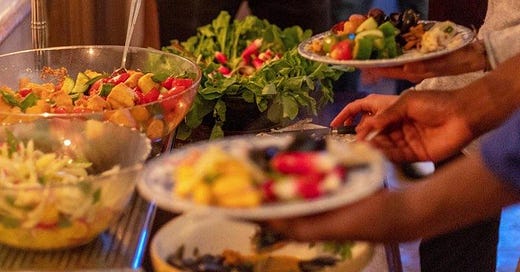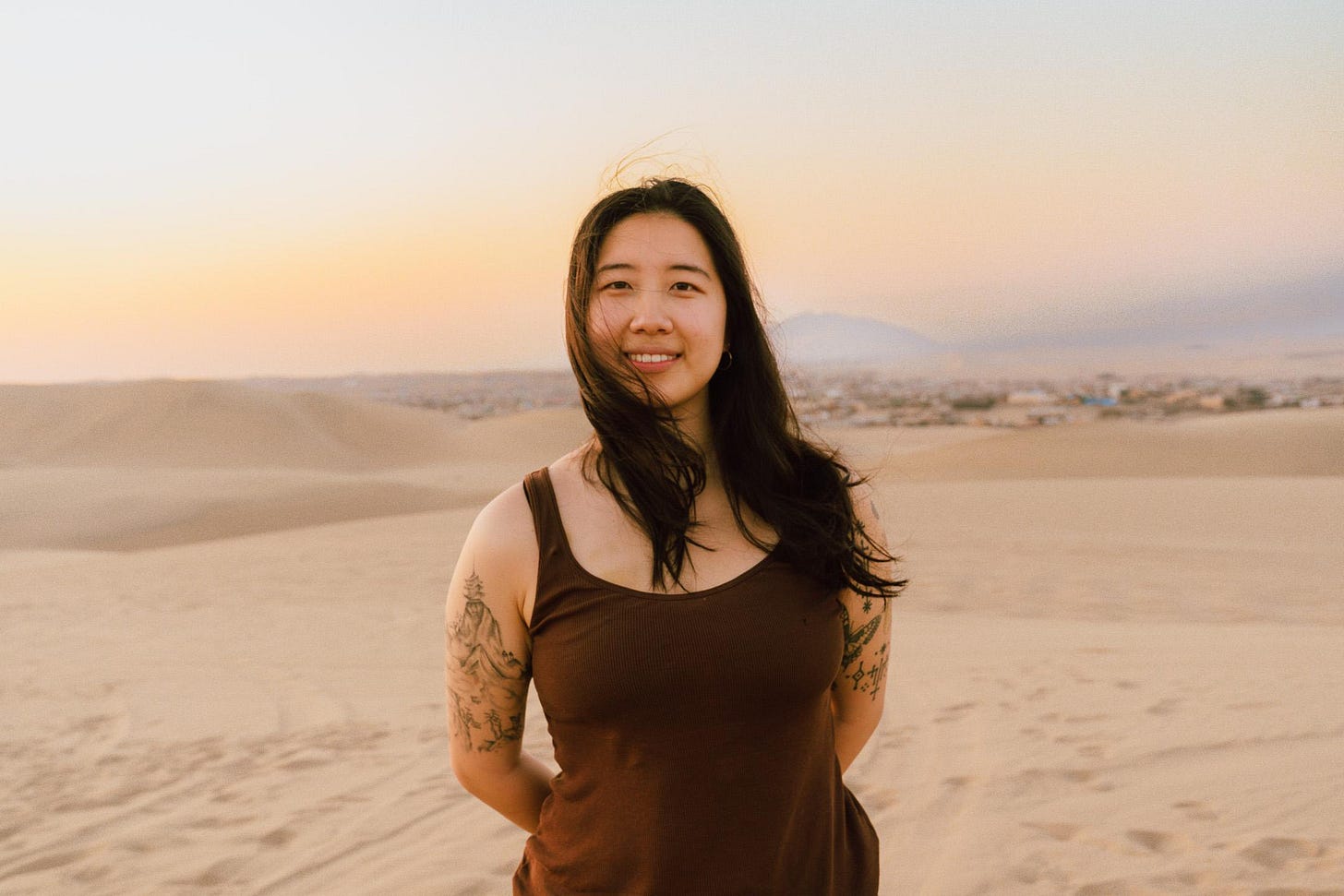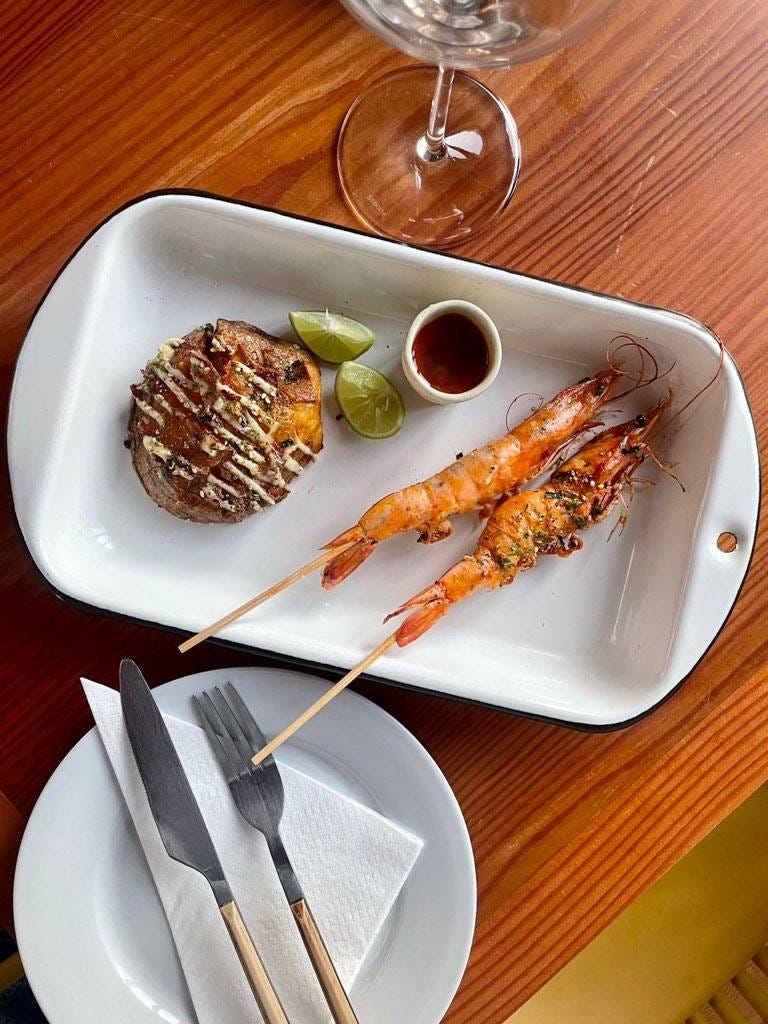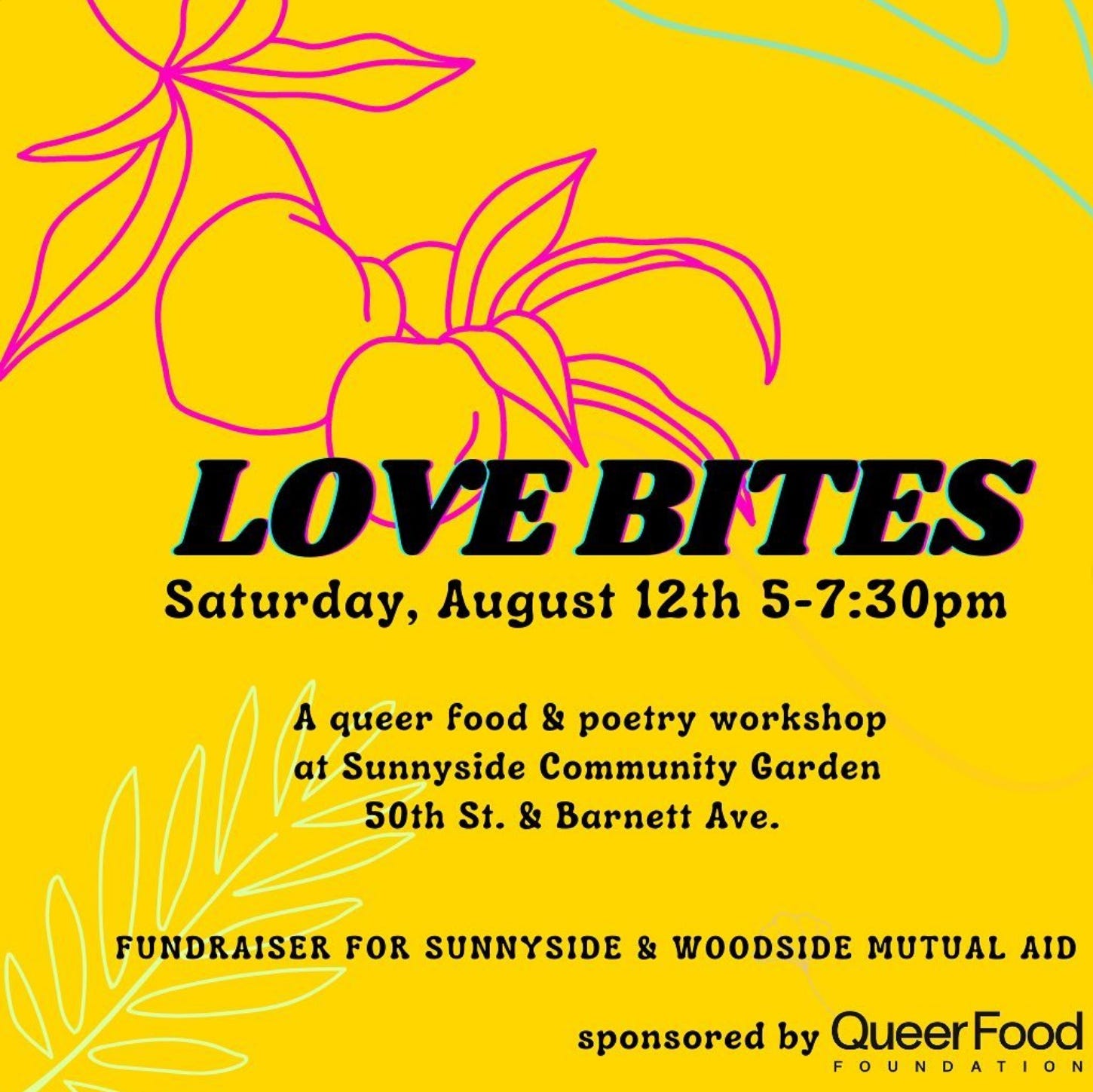Words on Food, Race & Power with Annie Faye Cheng - No. 22
And how to get involved with her food writing pop-ups.
Welcome to Vegarie! If you haven’t already, please subscribe (while it’s still free!) and you'll receive my biweekly newsletter on Tuesdays where I interview women in food—chefs, restauranteurs, writers, and creatives—all with unique, nerdy-passionate opinions on food.
This week’s post features Annie Faye Cheng, NYC-based food writer, cook, and one of the most curious students in the industry I’ve met. Annie is constantly learning, and through her writing, asking readers to think more critically about all things in the food world. From supporting workers as conscious consumers, to NYC kitchen unionization, even, to queer mycology—Annie’s got insight into it all. Together we talk about her life in and out of the kitchen, her menu development for a vineyard in Chile, and how you can get involved in her food writing workshops. Also! Annie gives some tips on how to write through creative blocks. She is just a treasure trove of knowledge. Trust me, you’re gonna leave this one feeling inspired.
“For me, it’s always been about the type of workers kitchens attract. Hospitality people are my people.”
Annie grew up in a small town in Florida and experienced her first role in food at 15 years old—working a fry kiosk at the mall. To this day, it holds a warm and fuzzy place in her heart as this woman-owned fry kiosk gave her a feeling of autonomy, running the stand open-to-close on her own. “I remember feeling so badass. Like yeah, for 8 hours a day, that fry kiosk was mine,” Annie recalls, smiling at her 15-year-old self. To my surprise, Annie spent the next three years working for Chipotle. She explains that working for a big fast-casual joint taught her a lot about cleanliness, food safety best practices, and regulations, but most of all, it exposed her to the diversity that exists in a kitchen staff. People from all walks of life worked shoulder to shoulder at Chipotle—immigrants, high school students, low-income family parents—who she wouldn’t have met working in any other industry. For that reason, her time at Chipotle reinforced her interest in food.
“Restaurant and foodie culture has always come second to my love for food people themselves. Hospitality people are my people.”
At Chipotle in her hometown, Annie dealt with years of wage theft, that would eventually result in a giant lawsuit against the branch. Daily, she was convinced to clock out 30min-1 hour before the end of her shift. Management phrased this as a way to "protect the family," and not all go into overtime hours, which the owner would be upset about. Unfortunately, this is a very common occurrence in the industry, and not just at fast-casual establishments. A famous example is Mario Batali’s restaurants, which were accused and convicted of skimming workers' tips, refusing fair wages, remuneration, and overtime—according to the Huffington Post and Eater.
With inspiration from her experiences in the kitchen, Annie went on to receive her Bachelors in Political Science and wrote her Senior thesis on the French Revolution and the development of restaurants in Paris. Annie has an extensive resume in the industry considering she’s only 25, including two years working in administration for Dan Barber at BlueHill at Stone Barns, and more recently, in the kitchen at WildAir on the Lower East Side. This past month, her adventurous spirit and expertise in menu development brought her to Kingston Family Vineyards in Chile. At the vineyard, Annie worked alongside the chef to source local produce and set the salon tasting menu for their high season, which begins in September. Mostly, the menu will consist of merkén, chupa de jaiba, aji verde, and ceviches.
"Maybe I'll eventually choose a path, but for now, I love to do it all."
Annie is currently working on a Master’s at CUNY in Labor Studies and just started a Butchery program at Hudson & Charles. Seamlessly juggling the food world in each avenue, Annie writes for various online publications from a humanitarian lens. Curious about so much within the F&B industry, at first I had a hard time explaining exactly what Annie writes about. Ultimately, her @achg.kitchen bi-line says it all—Annie shares words on food, race, and power—and her writing is powerful. “My writing practice started as a journal of sorts, a way to parse out the various ideas and connections I experienced through food,” she tells me. Her Instagram remains in a similar context, recently exploring the intersection of food with tech, medicine, and labor.
“Recently, I've been focusing on pitching more regularly to publications where my approach to writing is a good fit,” like Prism—an online publication that has given Annie the ground to cover different topics from an NYC-specific labor standpoint. My favorite piece of hers is one that I came across before we met, on queer mycology—which you can read on Smallhold. In this piece, she describes mushrooms as “queer, transformative, and gender-bending”—about a Harvard study of Schizophyllum fungus, and compares said findings to other theories re: gender politics, in a captivating way.
“microbial phytopathologist Erika Kothe identified over 23,000 different sexes in the single species—resulting from an extensive range of possible combined mating factors. Mushrooms, says Dr. Patricia Kaishian, can help us challenge ideas of binary (what is human? What is plant?) in gender, politics, and sciences.”
If the connection between fungi and queerness is new to you, I’d recommend giving it a read. Liike, now.
Coming up, she shares that she is working on a piece about her “100-block walks,” that she goes on from Sunnyside to Jackson Heights. Within it will include a list of all the "non-restaurant" restaurants that she has discovered along these walks.
“We love mutual aid, we love writing—and we felt we could bring the two together.”
Did I mention that Annie does it all? Right, well along with Leah Kirts and Sunnyside-Woodside Mutual Aid, Annie has also been running a series of food writing and tasting pop-ups, which are open to the community. So far, each event has been kept intentionally small for intimacy—with groups of around 10-15 people.
“We wanted to build an intimate space where writers, food friends, and our neighbors could all connect to consider food deeply. I am always motivated by the curiosity, emotional generosity, and sincerity that our attendees bring to each event.”
Leah, a freelance food writer and columnist for Them, leads most of the writing workshop. As the event begins to wind down, Annie brings in food for everyone to taste, and participates in the dialog. Annie’s favorite part about these events is that they build community. “People come looking to make friends in the industry,” she tells me, “often they come alone, and leave exchanging numbers.” The other beautiful part has been observing the vulnerability that people are willing to bring to the table, literally. “Our topics are real, they aren't always sunny."
Inspired by Annie’s curiosity and success in the food world, I asked if she had any final words of advice for creatives who are working through creative blocks. “Pick another medium!” She suggests, “If you can't cook, write. If you can't write, read. If you can't read, doodle.”
And with that, I think I’ll go doodle.
I can’t begin to thank you enough for your time Annie, you are an inspiration for women in food, and we are all delighted to see what you’ll accomplish.
Want to keep up with Annie’s food journey? Follow her on Instagram @achg.kitchen
Want to support Sunnyside-Woodside Mutual Aid, while building community with other food lovers? Keep an eye on @achg.kitchen or @leahkirts for tickets to their next pop-up!








